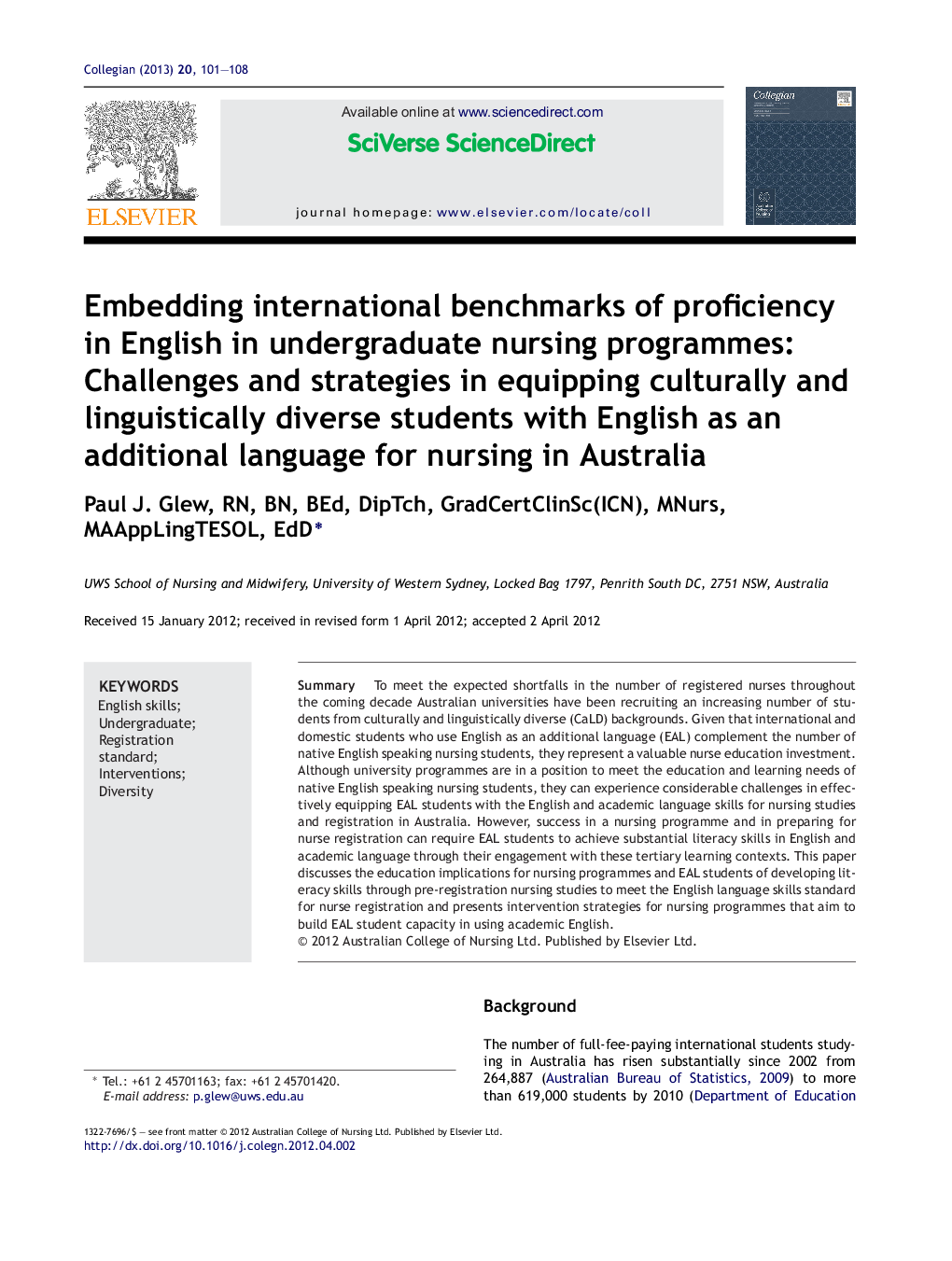| Article ID | Journal | Published Year | Pages | File Type |
|---|---|---|---|---|
| 2646896 | Collegian | 2013 | 8 Pages |
SummaryTo meet the expected shortfalls in the number of registered nurses throughout the coming decade Australian universities have been recruiting an increasing number of students from culturally and linguistically diverse (CaLD) backgrounds. Given that international and domestic students who use English as an additional language (EAL) complement the number of native English speaking nursing students, they represent a valuable nurse education investment. Although university programmes are in a position to meet the education and learning needs of native English speaking nursing students, they can experience considerable challenges in effectively equipping EAL students with the English and academic language skills for nursing studies and registration in Australia. However, success in a nursing programme and in preparing for nurse registration can require EAL students to achieve substantial literacy skills in English and academic language through their engagement with these tertiary learning contexts. This paper discusses the education implications for nursing programmes and EAL students of developing literacy skills through pre-registration nursing studies to meet the English language skills standard for nurse registration and presents intervention strategies for nursing programmes that aim to build EAL student capacity in using academic English.
